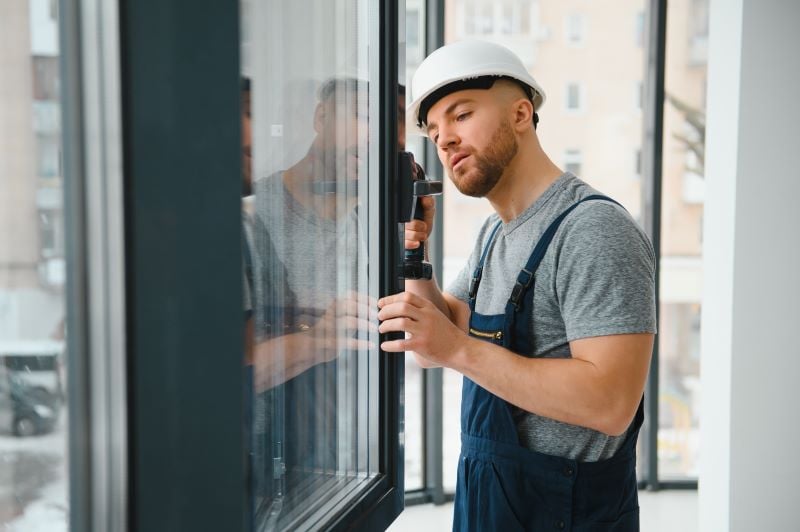Unfortunately, for many households across the UK, aging or faulty windows lead to higher energy bills, discomfort, and aesthetic issues. Thankfully, a variety of window replacement services, funding programs, and home improvement loans can help homeowners tackle these problems.

Finding the Right Local Provider
The first step is identifying reputable window installers that service your area. Resources like Checkatrade, Rated People and the Glass and Glazing Federation can help locate certified firms with strong reviews. Comparing multiple quotes also ensures you find the optimal balance of competitive pricing, quality products, and skilled installation.
Once a shortlist of providers is compiled, inquire about essential services like home consultations, accurate measurements, building regulations compliance, waste disposal, and installation guarantees. This due diligence pays dividends by streamlining the replacement process while providing assurance that the job will be done right. It’s also prudent to ask about financing options – many firms offer payment plans to help spread costs over time.
Assistance for Low-Income Households
For low-income households struggling with drafty, inefficient windows, financial assistance is available through councils and charities. Schemes like Warmer Homes Scotland provide free insulation and window upgrades to qualifying applicants. Others like Home Energy Scotland offer interest-free loans to fund the same.
Contacting the housing or environmental health department of your local council can uncover similar initiatives. Charities like National Energy Foundation and Energy Saving Trust also have programmes helping vulnerable residents access window replacements. While funding is limited, these services ensure that low-income families can enjoy warmer, more comfortable homes.
Support for Senior Citizens
Given the specific needs of aging populations, many councils and charities target assistance programs towards senior citizens. Age UK runs a free Handyperson Program assisting older people with essential home repairs and upgrades like window replacement. Local authorities have their versions too – Birmingham City Council’s Care & Repair service helps over 60s access reputable installers and discounted services.
For seniors who own their home, applying for a home improvement loan tailored for retirees can be worthwhile. With options for reduced monthly repayments, these let older homeowners spread costs interest-free. Consulting independent financial advisors ensures any borrowing makes long-term financial sense.
Green Homes Grant - Up to £5,000 Available
For eligible homeowners, central government schemes provide significant funding towards window upgrades. The Green Homes Grant allows applicants to claim up to £5,000 in vouchers, covering two-thirds of replacement costs. Low income households can receive up to £10,000.
To qualify, residents must use certified installers and ensure the new windows meet energy efficiency requirements. With streamlined applications and approvals, the scheme makes proven upgrades like double or triple glazing more accessible. Checking eligibility and applying quickly gives the best chance of success before budgets run out.
Energy Company Obligation - Free Installs Possible
Another route is having windows replaced under the Energy Company Obligation (ECO). This requires energy suppliers to help households cut bills by installing efficiency measures. To qualify, recipients must meet certain criteria like receiving specific benefits.
The scope of assistance depends on your provider. But it can include fully funded double glazing upgrades. British Gas, for example, offers free installs for eligible claimants under their ECO scheme. Others like EDF provide discounted replacement windows. Comparing supplier options ensures maximising ECO support.
Future-Proofing Your Investment
When replacing windows, invest in quality materials built to last. Durable yet energy efficient frames like uPVC, composite or aluminium reduce the need for repairs down the line. High-performance glass like double, triple or even quadruple glazing also future-proofs against rising energy costs. Though pricier upfront, the long-term savings make them a wise investment.
Aesthetic and Functional Upgrades
Beyond energy efficiency, new windows present an opportunity to enhance your home’s aesthetics and functionality. Tailoring frames, glazing and hardware to your property’s period look preserves its unique character. Opting for large panes and sash windows also maximises natural light. Integrating ventilation systems allows controlled air circulation while retaining efficiency. Such refinements elevate windows from necessities to desirable features.
Comparing Costs
With the wide range of window replacement options available, carefully comparing costs is advisable. Key factors to consider include:
Glass type (single, double, triple glazing)
Frame material (uPVC, wood, aluminium etc.)
Window style (casement, sash, tilt & turn etc.)
Optional upgrades like integrated vents
Accessories like blinds and shutters
Installation charges
Available grants, subsidies and financing
Thoroughly understanding these elements helps identify the most suitable and economical solutions for your property’s needs.
Let the Light Shine In
In summary, aging, inefficient windows negatively impact UK homes on many levels. But practical solutions exist through reputable installers, council and charity schemes, government funding, and energy supplier obligations. Doing comprehensive research and comparing all suitable window replacement services and financial support allows homeowners to access the upgrades they require. With new energy efficient windows installed, residents nationwide can enjoy revitalised, cost-effective, future-proofed properties bathed in natural light. The window to a warmer, brighter home has opened – it’s time to step through.

